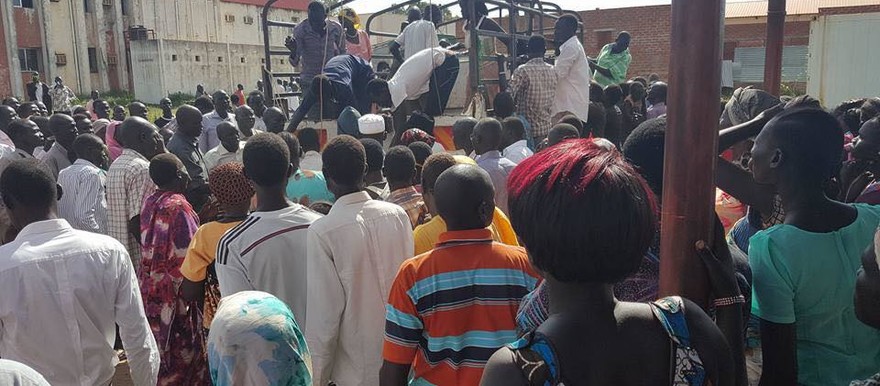South Sudanese have reacted with grief and anger over reports of the killing of more than 21 people on the road between Yei and Juba over the weekend amid concerns that the incident has increased inter-tribal tensions in the country.
Both Dinka and Equatorian intellectuals and leaders condemned the incident saying that the attack on the civilians in the convoy was “cowardly”, “barbaric” and unpatriotic. Some warned that the incident would fuel ethnic hatred in the country.
“We condemn these ethnic killings of Dinka in certain parts of Equatoria… Junubin please let's wake up and stop these brutal killings,” said Suzanne Jambo, former secretary for external affairs at the national secretariat of the ruling Sudan People’s Liberation Movement.
Jacob Lagu, an Equatorian writer in the diaspora commented, “This is certainly not the Equatoria that I recognise. These are not the actions of patriots, because true patriots hate injustice in their own homeland more than anywhere else.”
“To my fellow Equatorians in the bush, I will pass a message from a European sage who a long time ago warned: 'He who fights with monsters should look to it that he himself does not become a monster. And if you gaze long into an abyss, the abyss also gazes into you,” added Lagu.
Kuol Deim Kuol, a commentator on the social media site Facebook wrote, “Killing innocent civilians is a war crime. However, the first question which comes to the mind of some intellectuals is why the civilian convoy was not escorted by the security forces since most of the routes to Juba are not secured?”
Also reacting to the incident, Ambrose Riiny Thiik, head of the Dinka Council of Elders described the attack as “despicable act” that “did not the value life of innocent people”.
“The council certainly extends heartfelt condolences to the family of this cowardice and barbaric act and declared that we stand shoulder-to-shoulder with them”, said Ambrose when reached on Sunday.
In a message to Radio Tamazuj, Joseph Angok, chairman of the Awan Chan university students strongly condemned the attack as a “cowardly and terrorist act” that targeted unarmed civilians. “What happened? Is that the change SPLM-IO have been talking about? then if so it is totally a mess.”
Some SPLM-IO leaders themselves also condemned the incident, however, denying responsibility for the ambush. Mabior Garang, a spokesman of the movement said that the SPLM-IO “condemns in the strongest terms the killing of innocent civilians on the highways of South Sudan…the SPLM (IO) has no policy of killing civilians…this alarming situation should be investigated and the criminals held accountable.”
UNMISS, the peacekeeping mission in South Sudan, said through a spokesman that it was alarmed by reports of “horrific violence perpetrated against innocent and vulnerable civilians, including women and infants… UNMISS calls on all parties to refrain from further violence, ensure that commanders control their forces and protect civilians and their property and to cease all hostilities.”
Edmund Yakani, a civil society leader in Juba said the Yei-Juba road ambush could worsen the security situation in South Sudan, while attributing the ongoing insecurity to lack of progress in the implementation of the peace agreement: “The implementation of the peace agreement is very slow especially key provisions that talk about reforms, and the issue of unified army, and also the dialogue with armed groups that are still in the bushes whether under command of Riek Machar or those who are unknown in Equatoria, so the dialogue with them is very weak.”
Yakani said he expects that the lack of peace implementation will continue causing insecurity, saying social cohesion between the people of South Sudan will also be torn apart by the current situation.
The writer Jacob Lagu warned that violence in South Sudan was polarizing communities saying, “War is a dirty business. It inevitably degrades us all. It diminishes our humanity as steadily as we dehumanise our adversaries"
“We are all locked in conflicting victimhood narratives. Each side believes wholeheartedly that they are the victims of injustice. Each side believes that their adversary is the unrepentant aggressor. What makes this state of affairs particularly pernicious is tribalism. It causes us to associate a person with their community. It has sharpened the distinction between 'them' and 'us'. It has led us to the tragic calamity of collective punishment,” he stated.
Photo: Victims of the ambush being brought to Giyada military base in Juba over the weekend (Facebook/Dhieu Dok Community Chair Paweny Community Association)




